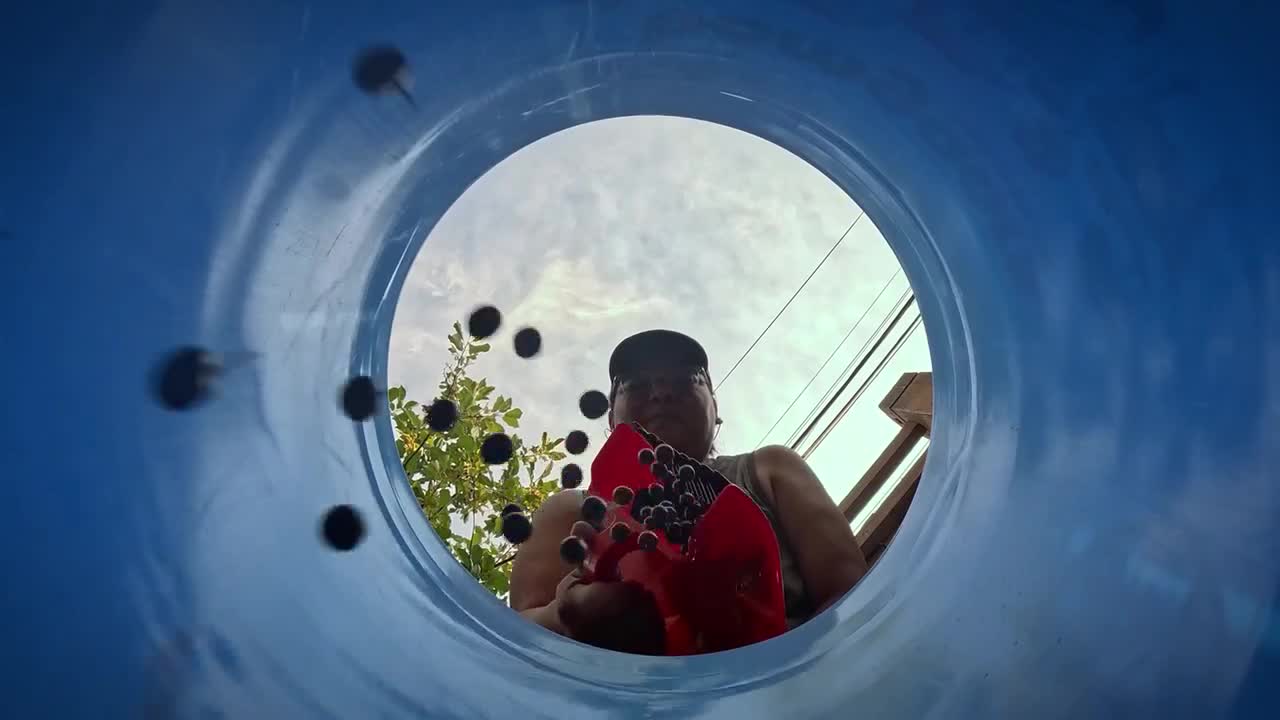BOULDER, Colo. — In backyards, parks, and natural areas across Boulder County this week, volunteers came together to harvest a fruit with deep roots, both in the soil and in tradition.
Chokecherries, small tart berries native to Colorado, have been used by Indigenous communities for centuries in food, medicine, and ceremony. But for many families on the Wind River Reservation in Wyoming, access to this sacred food has become limited. This is a result of displacement, overharvesting, and environmental barriers.
This week, a cross-state collaboration worked to change that. This partnership first started last year, and now, the City of Longmont, Wind River Indian Reservation, Wildlands Restoration Volunteers, Community Fruit Rescue, Food Bank of Wyoming and Food Bank of The Rockies has elevated this initiative to new heights.

“We have to collect tons and tons of chokecherries to help with our ceremonial uses,” said Patricia Goggles Shakespeare, a Northern Arapaho Tribe member. “We make chokecherry gravy, chokecherry water… It’s a fruit that’s part of our traditional foods.”
Tuesday morning, volunteers with Wildlands Restoration Volunteers, led by program director Morgan Crowley, harvested chokecherries at Boedecker Bluff Natural Area in Loveland.
Later that afternoon, volunteers with the nonprofit Community Fruit Rescue harvested berries from several sites across Boulder, including gardens of residents who wanted to donate their chokecherries. Community naturalist and homeowner Dave Sutherland was eager to give back.
“Where my home is built is on tribal lands that belonged to the Arapaho people,” said Sutherland, who grows native plants in his xeriscape garden. “It makes sense that we give something back.”
That community-driven harvest was supported by Wildlands Restoration Volunteers, Food Bank of the Rockies, and the Wind River Food Sovereignty Project. Together, they collected over 300 pounds of chokecherries, a significant increase from the 80 pounds gathered the year before.
Local harvesting efforts in Boulder were led by Melanie Hill, executive director of Community Fruit Rescue. They reached out to their partners and homeowners to find people willing to donate chokecherries from their gardens.
“There’s no abundant supply of chokecherries where they are,” Hill told Denver7. “We felt we could really harness the power of community here – people have these plants all over Boulder.”

The harvesting and ongoing work to provide food for tribe members in need on the Wind River Indian Reservation was initiated by Northern Arapaho Tribe member Jacqueline White. White is the tribal relations specialist with the Wyoming Food Bank and liaison for Food Bank of the Rockies.
“These are our traditional homelands of the Arapaho people,” White said, referencing the lands where volunteers harvested. “Our people are hunters and gatherers. Chokecherries are one of our sacred foods, and we utilize them in all of our ceremonies. There’s no substitution.”
White said this growing partnership with the City of Longmont is helping correct years of disruption. Overharvesting has left many Indigenous families without the berries they need for ceremonial purposes.
“People were selling them, and when our ceremonial people went to harvest, there were none left,” she said. “So we created this relationship.”
After harvesting, volunteers reconvened at Wildlands Restoration Volunteers in Longmont on Wednesday to wash, sort, and freeze the berries for distribution through the Wind River Reservation and the Elder Home Food Delivery Program. The berries will be turned into traditional jam and shared with elders ahead of key cultural ceremonies.

“It feels amazing. I don’t mean to be emotional,” White said, holding back tears. “But my heart is so happy.”
For tribal elders like Herbert Welch III, the harvest represents more than food.
“In the Arapaho Tribe, food is a sacred item,” Welch said. “There’s no better form of showing your generousness than by sharing what you have. And if you don’t have it, you gather it, and you pass that out to the people who need it.”
The project is part of a broader effort to promote food sovereignty and restore access to traditional and culturally meaningful foods in Indigenous communities. That mission, according to Wildlands Restoration Volunteers program director Morgan Crowley, is why so many partners have rallied behind the cause.
“We’re honored to be part of this,” Crowley said. “Our mission is building diverse communities that care for the land. We are really committed to making sure that our community of volunteers and agency partners are making sure that our community is as welcoming and inclusive as possible.”
White hopes this becomes an annual tradition, one rooted in collaboration, respect, and reconnection.
“This is just the beginning,” White said. “We all work together to accomplish these beautiful blessings that we get to do and help people with food.”










